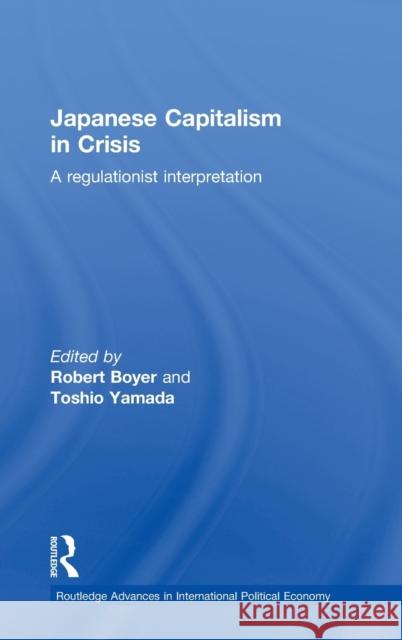Japanese Capitalism in Crisis: A Regulationist Interpretation » książka
Japanese Capitalism in Crisis: A Regulationist Interpretation
ISBN-13: 9780415205597 / Angielski / Twarda / 2000 / 256 str.
Japanese Capitalism in Crisis: A Regulationist Interpretation
ISBN-13: 9780415205597 / Angielski / Twarda / 2000 / 256 str.
(netto: 265,83 VAT: 5%)
Najniższa cena z 30 dni: 266,93
ok. 22 dni roboczych.
Darmowa dostawa!
Is Japan totally exceptional or is it a typical market economy? Is the poor macroeconomic performance of the 1990s down to archaic institutions or short term monetary and budgetary policies? Is the Japanese manufacturing system based on solid ground or does the bursting of the bubble highlight fundamental structural weaknesses? Should the Japanese authorities preserve the main tenets of their post-World War II economic institutions or should they do more to embrace market led capitalism? The contributions to Japanese Capitalism in Crisis show that there can be a middle ground between these extremes and delivers two benefits: a deeper understanding of long term development and an extension of existing theory. A regulationist approach is used to examine how the periods of growth and crisis can be attributed to the institutions which govern capital accumulation. This book should prove to be of value to students and researchers studying the economies of Japan and other east Asian countries as well as all those interested in patterns of boom and recession worldwide.











